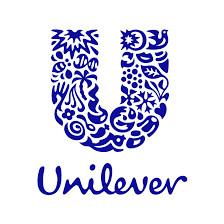
If division within societies are created by digital platforms like Facebook and Google or if they are unable to protect children, then Unilever would stop putting advertisements on such digital platforms. The company which is the largest ad spender in the world is all ready to issue this treat soon.
The plan would soon be explained by the company at the annual Interactive Advertising Bureau conference in California by Keith Weed, chief marketing officer at Unilever.
The company has taken special cognizance of the areas of fake news and “toxic” online content and Weed intends to alert the digital media on these issues in addition to enhancing transparency and belief of the consumer.
“Unilever, as a trusted advertiser, do not want to advertise on platforms which do not make a positive contribution to society,” Weed would say according to reports seen by the media.
While not targeting any specific digital platform, the company notes a clear shortage of focus on the part of the tech firms to uphold content and has not been able to keep illegal, unethical and extremist content way from their websites and this, according to the company, has resulted in social media content reaching new lows.
Companies that are pledged to formulating enhanced digital infrastructure would only be entertained, Unilever said and added that it remained focus at addressing gender issues in advertising as well.
“Fake news, racism, sexism, terrorists spreading messages of hate, toxic content directed at children ... it is in the digital media industry’s interest to listen and act on this,” Weed is planning to say. “Before viewers stop viewing, advertisers stop advertising and publishers stop publishing.”
A new partnership with IBM aimed at reducing fraud in advertisement to obtain dependable measurement metrics with the use of blockchain technology will also be highlighted by the company.
Last year, a Dove advertisement on Facebook was allegedly racists which drew c=severe criticism against Unilever.
In 2017, the company expenditure in advertisements was 7.7 billion euros ($9.4 billion). One-third of that amount was spent in digital advertising.
While the investment of the company in the creation of digital content has increased by more than 60 per cent in the last five years, the expenditure on various digital platform for ads has also doubled.
The company has cut down on the spend in number of ads and the advertising agencies that it works with in the traditional media as a part of its cost curtailment strategy which has seen its expenditure on advertisement in the traditional media also getting reduced. A bout 35 per cent less ads for traditional media was created by the company as a result of the cist curtailment drive.
Facebook said in a statement: “We fully support Unilever’s commitments and are working closely with them”, referring to Unilever’s demands from social media platforms. There were n o comments made by Google.
(Source:www.reuters.com)
The plan would soon be explained by the company at the annual Interactive Advertising Bureau conference in California by Keith Weed, chief marketing officer at Unilever.
The company has taken special cognizance of the areas of fake news and “toxic” online content and Weed intends to alert the digital media on these issues in addition to enhancing transparency and belief of the consumer.
“Unilever, as a trusted advertiser, do not want to advertise on platforms which do not make a positive contribution to society,” Weed would say according to reports seen by the media.
While not targeting any specific digital platform, the company notes a clear shortage of focus on the part of the tech firms to uphold content and has not been able to keep illegal, unethical and extremist content way from their websites and this, according to the company, has resulted in social media content reaching new lows.
Companies that are pledged to formulating enhanced digital infrastructure would only be entertained, Unilever said and added that it remained focus at addressing gender issues in advertising as well.
“Fake news, racism, sexism, terrorists spreading messages of hate, toxic content directed at children ... it is in the digital media industry’s interest to listen and act on this,” Weed is planning to say. “Before viewers stop viewing, advertisers stop advertising and publishers stop publishing.”
A new partnership with IBM aimed at reducing fraud in advertisement to obtain dependable measurement metrics with the use of blockchain technology will also be highlighted by the company.
Last year, a Dove advertisement on Facebook was allegedly racists which drew c=severe criticism against Unilever.
In 2017, the company expenditure in advertisements was 7.7 billion euros ($9.4 billion). One-third of that amount was spent in digital advertising.
While the investment of the company in the creation of digital content has increased by more than 60 per cent in the last five years, the expenditure on various digital platform for ads has also doubled.
The company has cut down on the spend in number of ads and the advertising agencies that it works with in the traditional media as a part of its cost curtailment strategy which has seen its expenditure on advertisement in the traditional media also getting reduced. A bout 35 per cent less ads for traditional media was created by the company as a result of the cist curtailment drive.
Facebook said in a statement: “We fully support Unilever’s commitments and are working closely with them”, referring to Unilever’s demands from social media platforms. There were n o comments made by Google.
(Source:www.reuters.com)














